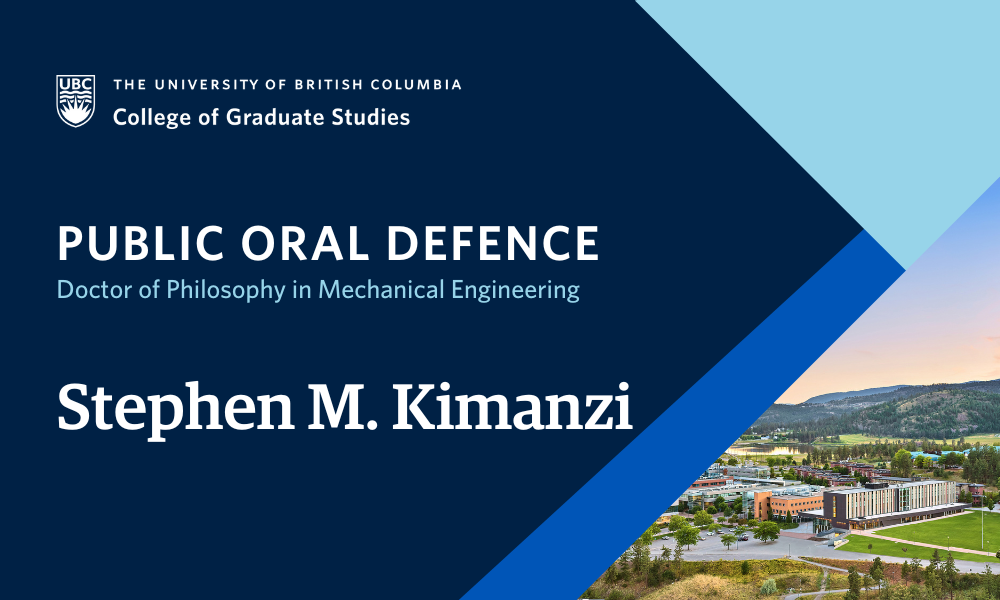
- This event has passed.
Dissertation Defence: Design and Evaluation of a Novel Passive Multi-Degree of Freedom Hand Tremor Attenuator
October 2 at 9:00 am - 1:00 pm

Stephen M. Kimanzi, supervised by Dr. Hadi Mohammadi, will defend their dissertation titled “Design and Evaluation of a Novel Passive Multi-Degree of Freedom Hand Tremor Attenuator” in partial fulfillment of the requirements for the degree of Doctor of Philosophy in Mechanical Engineering.
An abstract for Stephen M. Kimanzi’s dissertation is included below.
Examinations are open to all members of the campus community as well as the general public. Please email hadi.mohammadi@ubc.ca to receive the Zoom link for this exam.
ABSTRACT
Tremors represent one of the most prevalent types of movement disorders, often leading to significant functional impairments. With the rapidly expanding landscape of research and development in addressing neurodegenerative movement disorders like Parkinson’s Disease, there is a growing focus
on devising effective solutions. While existing medical interventions, including surgical procedures like Deep Brain Stimulation and medications such as Levodopa, have shown varying degrees of success, there is increasing interest in exploring alternative approaches. One such approach involves mitigating tremors by suppressing their manifestation in specific areas of the body, particularly the palm. The aim of this research is to conceptualize, design, and assess a tremor suppression device capable of attenuating tremors across multiple degrees of freedom (DOFs). This is achieved by framing tremors as a vibration problem and subsequently employing vibration absorber design techniques to develop a passive, non-linear multi-degree-of-freedom (MDOF) attenuator. Through dynamic modelling of the human arm complex at the musculoskeletal level, coupled with iterative refinement of the device through rigorous experimental evaluation, the final prototype demonstrates significant efficacy in reducing tremors across multiple DOFs. Specifically targeting the most
troublesome tremor DOFs of pronation-supination and flexion-extension, the device achieves reductions exceeding 70%. Patient outcomes corroborate the findings of the experimental evaluation, with a notable two-thirds retention rate observed among nearly 1000 units deployed. These results underscore the promising potential of the developed device in mitigating the debilitating impacts of neurological movement disorders. Furthermore, they lay the groundwork for the advancement of assistive devices aimed at improving the quality of life for individuals affected by such conditions.